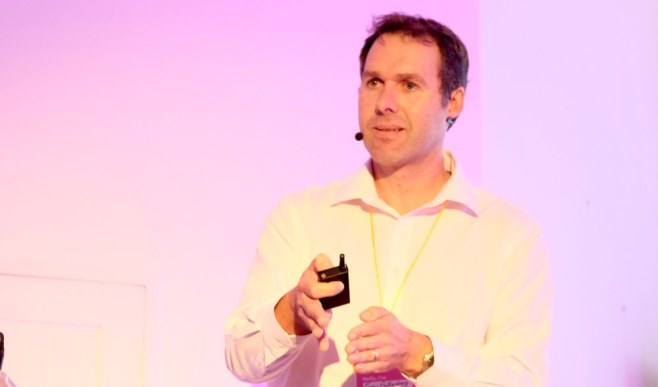By Adam Oxford
There’s a lot of angst in the world at the moment. From State Capture to Trump to Brexit, lots of things are making South Africans afraid of the future.
And one of the scariest htings that’s happening in the world today is the way in which AIs and bots are replacing human jobs. Automation of jobs is terrifying people smarter than us, who reckon 47% of jobs in the US are at risk of automation.
In South Africa, where jobs are scarce enough as it is, it’s a great and largely undiscussed issue we have to face.
Ryan Falkenberg, the managing director of South African bot developer Clevva, believes that instead of focussing on the way AIs can replace humans, we should be thinking about how they can enhance and improve the humans at the business front line.
Speaking at BotCon Africa in Joburg this morning, Falkenberg explained his belief that there’s a fundamental disconnect between the way new business are developed and the way they are used. New business processes tend to based on two dimensional decision trees drawn up in Visio, when actually most problems an employee will face are much more complex and multifaceted.
The problem, he says, is that training people to follow a script or learn detailed product manuals by rote is setting people up for failure. Ultimately, it leads to information overload and over-complexity, so “it’s no wonder it looks like people are failing at simple tasks”.
The blame starts within the school system, Falkenberg says, which teaches students to repeat things rather than think creatively around problems.
There’s always a right and wrong answer, and ultimately it means everyone will get it wrong at some point and fail. He says he’s met many employees who live in perpetual fear of failure, they know that in the course of their day, they will get something wrong.
This thinking, Falkenberg believes, is pervasive in business in South Africa – particularly in businesses that employ large numbers of people who may not have received quality educations. The upshot is that people live in fear of failure, which they can’t avoid.
“We spend our lives giving people formula and then salivating at the way we can replace them with tech.”
This is true in many areas of employment, he says, but most obvious in customer service fields.
“Most orgs focus on bots in customer services space- remove the need for contact centres and retail branches. Able to do that pretty well already,” Falkenberg says, and part of this is because the solutions are being designed by the IT team and not involving HR. As result, the focus becomes on systems and efficiency without ascribing any value that human interaction brings to a job.
“Data scientists don’t have to manage people, that’s not their job. Their job is to build systems.”
Falkenberg warns that once you introduce automated responses and bots into these products, the temptation for designers who don’t work with people on a daily basis to start to design humans out of the process.
The alternative that Falkenberg proposes is to use the capabilities of machine learning and chatbots to enhance people’s roles. He uses the analogy of a paper map representing old ways of training staff and a GPS-like system which helps them do their jobs and be creative. He describes this principle as building “a copilot” to make you better at your job.
In practice, it sounds like the way IBM is approaching its deployment of its Watson AI in call centres, as a way of bringing better information to human agents rather than replacing them. Falkenberg’s example is of a bank that Clevva has worked with which has hundreds of branches in South Africa in which the average staff member may not have progressed beyond grade 8 or matric.
Clevva’s answer, rather than moving to remove people out of the system, was to arm branch staff with a tablet and software which acts as an intelligent guide through normal customer processes, but allows the staff to focus their energies on providing the experience that they’re good at.
“Your job becomes to be a facilitator of awesome customer experience,” he explains. And in his experience he says that this strategy pays off. The unnamed bank, he claims, saw immediate benefits in customer satisfaction, lead generation and sales and – importantly – staff happiness too.
Is it enough to stop the bots ultimately replacing us? Who knows…
© Copyright 2017. htxt.africa

